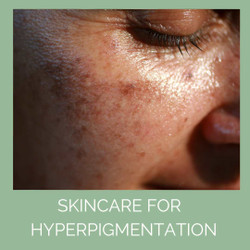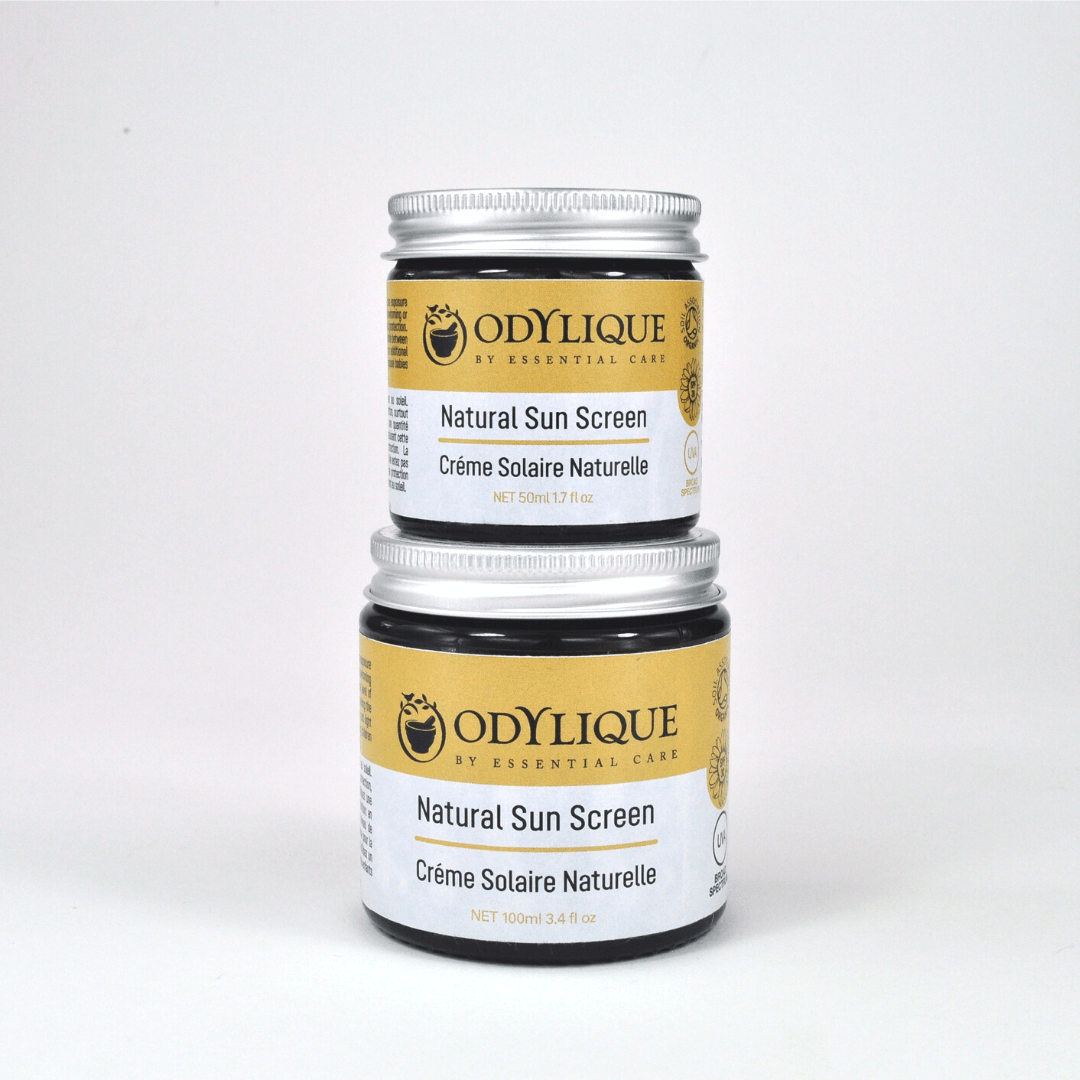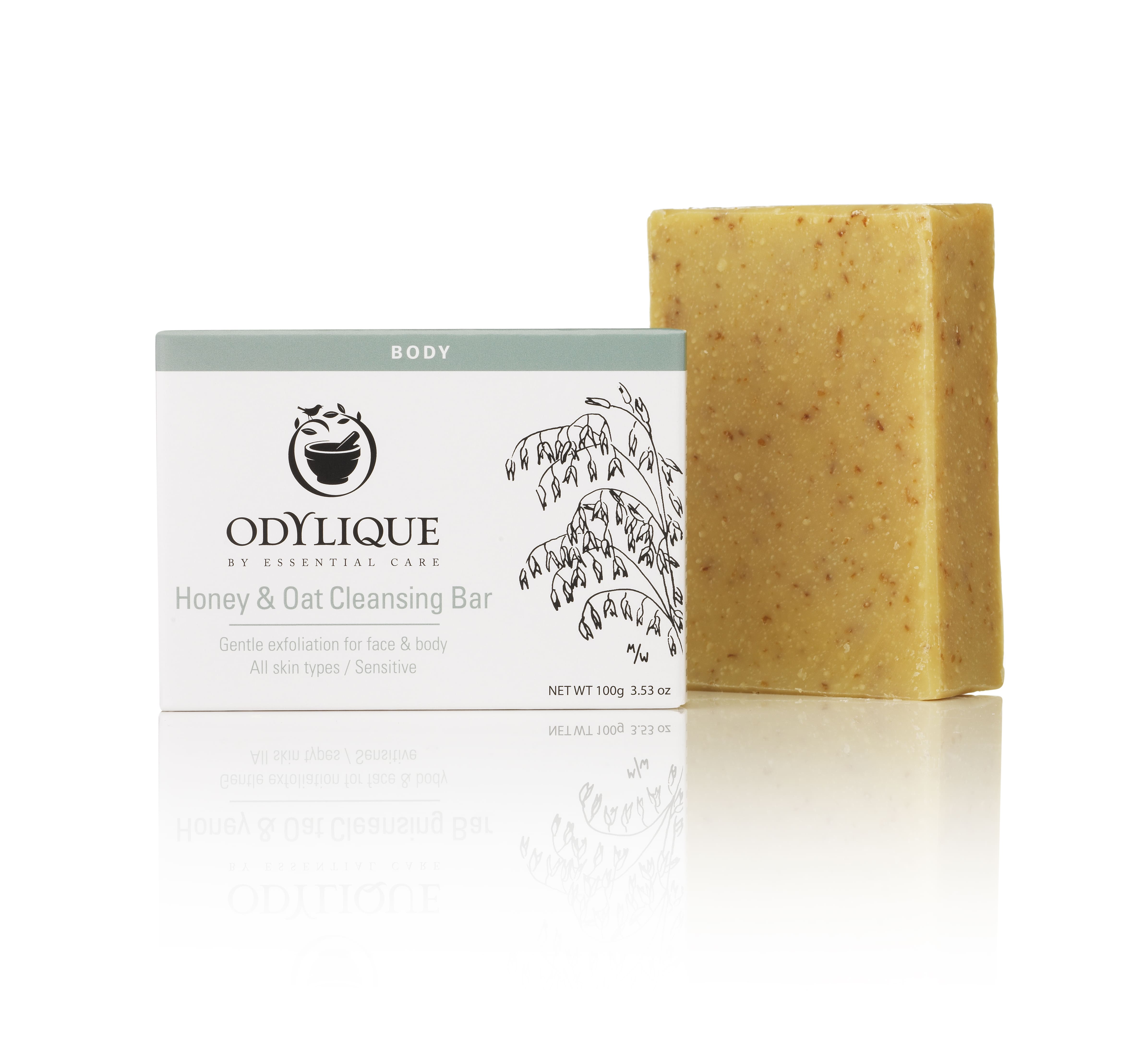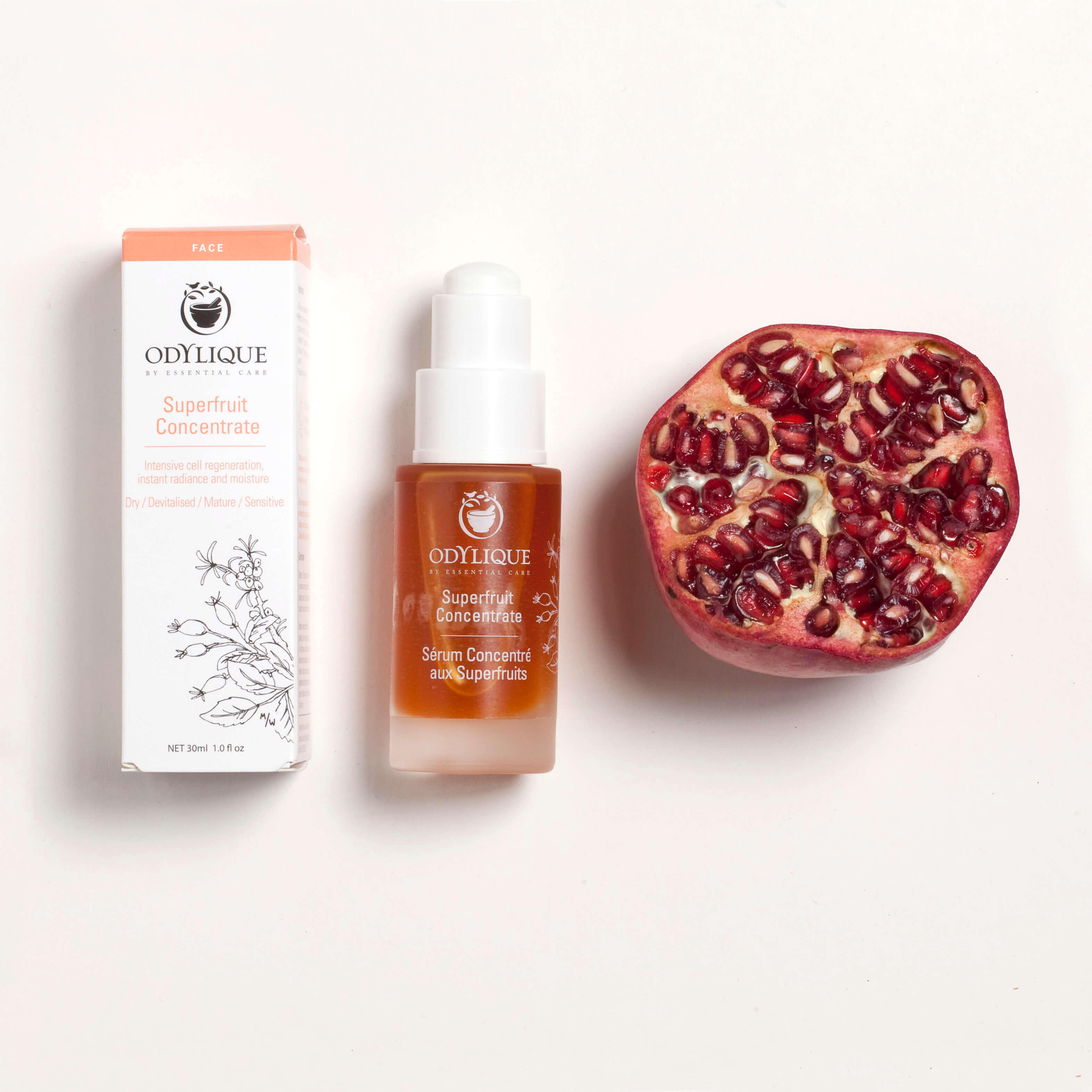If you have hyperpigmentation (or any of the other conditions like it, such as melasma) you may be aware of how challenging it can be to manage.
In this guide, we’ll explore what hyperpigmentation is, why it occurs and how natural skincare solutions can help.
What is hyperpigmentation?
Hyperpigmentation when it relates to skin, means areas that have heightened colour. These may occur as dark patches that are brown or grey in tone. You may have areas of heightened redness.
It may also appear as:
- Age spots
- Liver spots on your hands, arms or back
- Patches of melasma. This means darkened skin in areas where there may be sun damage, often including the eyebrows, upper lips, and forehead. Melasma is very common in pregnancy.
- Shoulder discolouration
Who can develop hyperpigmentation?
Anyone of any ethnicity and skin colour can develop hyperpigmentation, but some people are more at risk than others:
Pregnant women often suffer from ‘the mask of pregnancy’, or melasma affecting the centre of the face particularly.
People who have experienced acne often end up with darkening of the skin and scarring, which can appear as hyperpigmentation.
People who take the oral contraceptive are more prone to hyperpigmentation.
People who have experienced sun damage show signs of it more as they age.
What causes hyperpigmentation?
We get our skin tones from melanin, which is produced in the skin cells. How much melanin you have depends on your skin tones, but if those skin cells are damaged or unhealthy, it can lead to an overproduction of melanin. These melanin cells react differently to normal melanin, clumping together and leading to the darkened patches we see.
Many things can lead to hyperpigmentation:
- Being very freckly can lead to areas of hyperpigmentation.
- If you don’t produce enough cortisol, you may have a condition called ‘Addisons’ which can lead to darkened skin.
- Pregnancy
- Post inflammatory injury, such as following a burn.
- Not getting enough of certain vitamins, such as B12 and folic acid.
- Sun damage (these spots are often called solar lentigines).
- Light sensitivity
- Thyroid disorders.
*Please note that hyperpigmentation has no other symptoms. If your darkened areas are itchy, sore, raised or red please see a doctor as a matter of priority
How to Manage Hyperpigmentation
Lifestyle Changes
Before investing in creams, potions or treatments from the doctor that can be quite intense, be aware that fading your hyperpigmentation means you need to be looking at some lifestyle changes. ALWAYS talk to your doctor before deciding on a course of action – if you have any skin changes, it is always worth seeking the advice of a professional first. Once it’s been confirmed that it is hyperpigmentation you may want to:
- Avoid sun exposure by staying out of the sun, using natural sunscreen and wearing protective clothing. The sun works by bringing the melanin to the surface and this can make the look of your hyperpigmentation worse
- Stopping any medications that may be causing it (only with your doctors approval)
- Taking vitamins
- Avoiding saunas or hot tubs which can worsen the issue
Traditional over-the-counter skin care approaches include:
- Azelaic acid
- Corticosteroids
- Glycolic acid (alpha-hydroxy acid).
- Hydroquinone
- Kojic acid, a chemical that can reduce the amount of melanin the body produces.
- Salicylic acid
- Retinoids
- Vitamin C or B3 (niacinamide)
Some of these may improve the look of your skin, however if you look at hydroquinone (a skin bleaching agent) for example. Over time this can create more redness so you can’t use it for long and it has some very significant side effects. Corticosteroids can be harmful to the skin’s natural balance and lead to long term allergic reactions.
Professional options may include:
- Chemical peels - but these can in fact make things worse, by making the skin more likely to react to the sun, so good sun care is even more important.
- Cryotherapy
- Laser skin resurfacing – effective can irritate sensitive skins and is not suitable for certain skin conditions.
Even with all the above, and their related side effects, it can take up to three months to start seeing a difference and up to 12 months for a full reduction in the signs of hyperpigmentation, hence why many people prefer natural skincare options to reduce and manage the signs of hyperpigmentation in their skin.
Natural Skincare Options to Reduce the Signs of Hyperpigmentation and Melasma
1. Address the cause, not the symptoms:
It depends on the type of hyperpigmentation you have but our advice is to always look to reduce the cause of the hyperpigmentation, then the effects.
For example, if you have acne, you might choose to use something like a natural acne serum to get your skin flare up under control before treating the overall symptoms.
This should be gentle, unlike commercial wisdom we don’t believe in stripping the skin using multiple acids is effective – over exfoliation often causes more problems than it solves.
TRY OUR CERTIFIED ORGANIC ACNE SKINCARE
2. Avoid over-exfoliation:
There is nothing wrong with exfoliating the skin occasionally. It’s great for bloody flow and cell-turnover, reduces fine lines and wrinkles.
However, as mentioned, skin that is over-exfoliated reacts with sensitivity, so all those acids will leave the skin open to sun-damage, redness, reactivity to other ingredients, and even acne due to overproduction of skin oils to replace it.
Gentle exfoliation with a pH-balanced wash or soap is a far kinder way to treat your skin.
It’s especially important to note this if you’re pregnant when ingredients like retinoids are a no-no. You’re also not meant to use tretinoin (Vitamin A) in summer, as it leaves the skin too open to damage, and that is when lots of us get Hyperpigmentation, so patience is key.
3. Use high SPF sunscreen:
A sun cream with a high-spf won’t stop you having melasma if it’s caused by pregnancy or scarring but it will stop it getting worse.
We’re not ones for suncream all day every day – vitamin D is extremely important – but certainly on sunny days and all summer, make sure you use a broad spectrum (UVA and UVB) sunscreen and keep it topped up to ensure your discolouration doesn’t increase.
This is the same no matter what skin colour you have. It's important to note that even very dark skins can develop skin conditions so please be careful in the sun.
4. Fall in love with Aloe Vera
Aloe Vera contains aloin, a compound that has been shown to lighten skin and work effectively as a nontoxic hyperpigmentation treatment, according to a 2012 study.
Our skincare is rich in aloe vera, but especially our timeless rose moisturiser, which is great for sensitive and reddened skins, which is rich in aloe vera.
5. Consider a Green Tea Wash
2013 Research demonstrated green tea extract can reduce pigmentation when applied directly to the skin .
Simply steep a green tea bag in boiled water for five minutes
Remove the tea bag and pop the water in the fridge to completely cool
Rub the tea over the dark patches twice a day. This isn’t an overnight option but it is very gentle for those with eczema and pregnancy and a nice skin treat to boot.
6. Lycopene-Rich Foods
Alternatively, research has shown that milk, black tea and tomato paste can all help.
The British Journal of Dermatology in 2011 found that tomato paste rich in lycopene protected the skin against short-term and long-term aspects of photo damage.
Study participants consumed 55 grams of tomato paste in olive oil daily for 12 weeks. Great news for lovers of Italian food!
7. Rosehip Oil:
The ultimate support for hyperpigmentation is Rosehip oil.
Serums rich in rosehip oil carry a compound called linoleic acid, which studies have shown works to brighten overall skin tone and reduce the appearance of dark areas.
It contains high amounts of vitamin C , which is the key ingredient recommended for brightening and is rich in fatty acids that support healthy turnover.
For more information on natural ways to manage your skincare regimen, please contact our skincare experts here >




